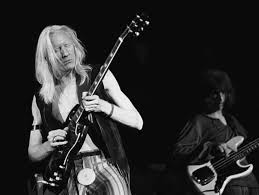I despise smooth jazz, which is not to say that I dislike jazz performed with smoothly demonstrated technique. Charlie Parker, Miles Davis, John Coltrane, Freddie Hubbard, et al are "smooth" in the utmost execution of their respectively impressive techniques, which means, for this grouch at least, that they can summon their best abilities at will and spontaneously compose harmonically, rhythmically and euphoniously nuanced improvisations upon a suitably provocative melody or composition.
That inadequate sentence does not take into account what is now a substantial history of development in jazz, which has became much more than dance music, as all manner of mood, emotion and states of being have found profound and exciting expression from the hands of various masters who've come along over the decades to forge new paths for the form. "Smooth jazz", as I mean it, is an Industry marketing term, a genre that strips elements of jazz, blues, funk, soul to the simplest technical components and proffers mid-tempo instrumentals that are melodically constricted; no strange chords or transitions, no thematic development. The solos, in turn, don't strike you as improvisations at all--to use a horrid cliché-- every solo sounds like the one before it and the one coming after it. 'Smooth jazz", as I define it, is not about a command of one's technique, but how little of one's know-how a musician utilizes in search of sounds that are merely marketable.
We have, in essence, another case where perfectly useful words are corrupted and meant to convey the contemptible instead. "Smooth" need hardly be synonymous with "mindless". I would quince my thirst for what's smooth in the Pat Metheny Group, who have interesting compositions, or good old Chet Baker, both in the tradition and an improviser with the best-muted trumpet tone this side of Miles.
That inadequate sentence does not take into account what is now a substantial history of development in jazz, which has became much more than dance music, as all manner of mood, emotion and states of being have found profound and exciting expression from the hands of various masters who've come along over the decades to forge new paths for the form. "Smooth jazz", as I mean it, is an Industry marketing term, a genre that strips elements of jazz, blues, funk, soul to the simplest technical components and proffers mid-tempo instrumentals that are melodically constricted; no strange chords or transitions, no thematic development. The solos, in turn, don't strike you as improvisations at all--to use a horrid cliché-- every solo sounds like the one before it and the one coming after it. 'Smooth jazz", as I define it, is not about a command of one's technique, but how little of one's know-how a musician utilizes in search of sounds that are merely marketable.
We have, in essence, another case where perfectly useful words are corrupted and meant to convey the contemptible instead. "Smooth" need hardly be synonymous with "mindless". I would quince my thirst for what's smooth in the Pat Metheny Group, who have interesting compositions, or good old Chet Baker, both in the tradition and an improviser with the best-muted trumpet tone this side of Miles.








